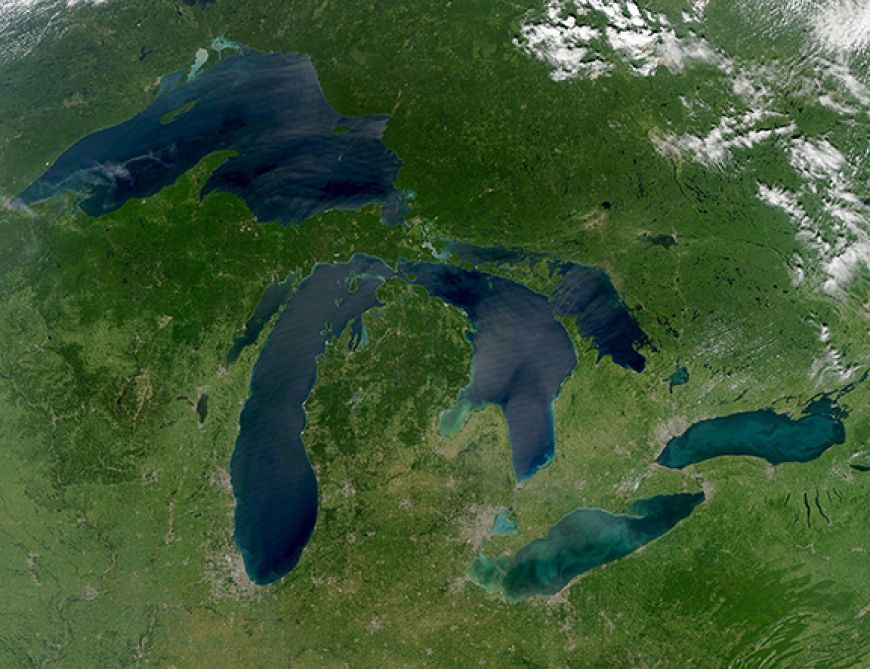
 back to all news
back to all news
U-M receives NSF grant to study climate migration in Lake Victoria Basin, Great Lakes Region

The impacts of climate change on human mobility are projected to be significant, with estimates suggesting that anywhere from 200 million to 2 billion people could be on the move by the end of the century. The U.S. National Science Foundation (NSF) has awarded a three-year, $614,000 grant to the University of Michigan and its international partners to create a new research initiative that will address the socioeconomic vulnerabilities of climate migrants in the Lake Victoria Basin (LVB) and Great Lakes Region (GLR).
Known as Climate Adaptation and Resilience Strategies (CLARS), the research project aims to fill critical gaps in understanding climate migration as a complex process that affects not only migrants but also the communities they join, according to Derek Van Berkel, an assistant professor at U-M’s School for Environment and Sustainability (SEAS) and the project’s principal investigator.
Climate migration is the movement of people from one place to another because of changes in the climate, Van Berkel said. This can happen when extreme weather events such as hurricanes or floods make living in an area difficult or impossible. It can also occur gradually when conditions such as rising temperatures or sea levels slowly make areas less habitable, affecting people’s homes and their ability to grow food or find water.
The researchers chose to focus on the Lake Victoria Basin in Africa and the Great Lakes Region in North America because they are resource-rich areas that could attract climate migrants in the future. Lake Victoria already is experiencing climate migration, Van Berkel noted, while the Great Lakes Region is expected to experience it. Each area could learn valuable lessons from the other while providing critical knowledge to a team of international researchers that could be scaled and adapted around the globe.
“This effort not only aims to reflect the real needs and aspirations of the communities involved but also to facilitate dialogue amongst local stakeholders to better understand and manage the impacts of migration on their environments and economies,” Van Berkel said.
“Through comprehensive comparisons across various urban centers, the project will offer insights into how these tools can be scaled and adapted elsewhere, potentially transforming how cities worldwide approach the complexities of climate-driven migration, fostering more resilient and inclusive communities. This initiative will also enable cities to share valuable insights and effective practices with each other, tailored to their specific geographical challenges.”
Van Berkel, along with SEAS Professor Maria Carmen Lemos, will lead the project’s community engagement efforts. This project will expand on the efforts of GLISA and NOAA's Great Lakes CAP/RISA team, which have created a decision support tool named PIVOT (Participatory GIS urban deVelOpment Tool).
Initially developed through collaborative workshops with city practitioners, researchers, residents, and practitioners from the Great Lakes, PIVOT leverages public participatory GIS technology. The tool enables users to interactively mark priority areas on digital city maps, such as potential sites for new buildings to accommodate climate migrants. It allows communities to visualize their urban areas and make strategic decisions on land use and preparedness measures in response to expected climate migration.
“As climate change increasingly affects vulnerable populations worldwide, initiatives like CLARS play a crucial role in understanding and addressing the complex challenges of climate migration,” Van Berkel added. “Through collaborative research and inclusive practices, CLARS aims to contribute to a more sustainable and just future for all.”
Funding partner countries are Canada and the United Kingdom. Additional researcher country partners include Uganda, Kenya and Tanzania.

